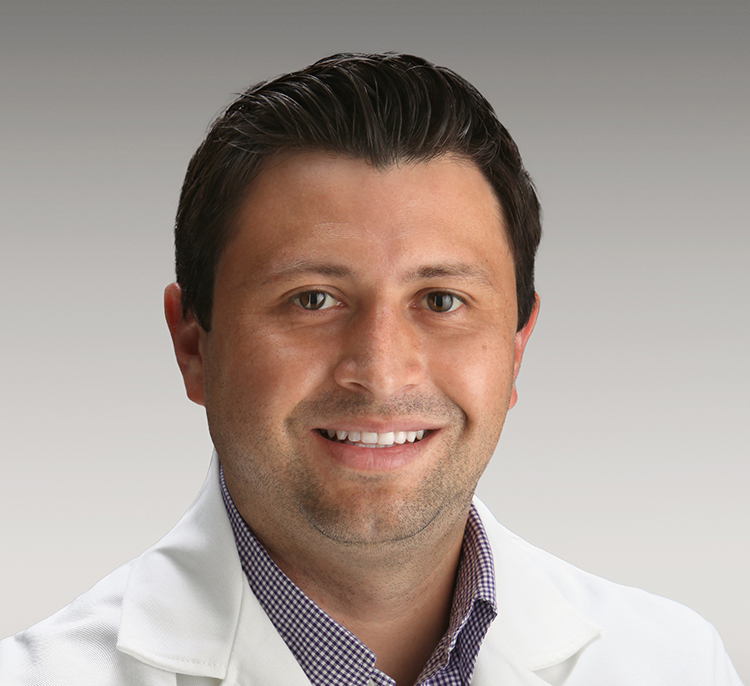Biography
Dr. Sanchez was born in Chicago, Illinois, and raised in Mexico until he went to college. He enjoys every aspect of pulmonary medicine and has a special interest in asthma/COPD, lung cancer, and pulmonary hypertension.
Dr. Sanchez is fluent in English and Spanish, and he enjoys playing tennis and soccer, running, and playing the piano.
MEDICAL DEGREE
University of Medical Health Sciences in St. Kitts & Nevis, Caribbean
MASTER OF HEALTHCARE ADMINISTRATION|
Walden University in Minneapolis, Minnesota
INTERNAL MEDICINE RESIDENCY
NHRMC in Wilmington, North Carolina
PULMONARY AND CRITICAL CARE MEDICINE FELLOWSHIP
East Carolina University/Vidant Medical Center in Greenville, North Carolina
Interviews and Articles
HEALTH WATCH: Controlling asthma
By Stephanie Bowens for StarNews
Posted September 9, 2020
Asthma is a chronic disease that affects the airways, tubes that carry air in and out of a person’s lungs. According to the National Institute of Environmental Health Sciences, NIEHS, asthma was once considered rare but is now a common disease in childhood. More than 26 million people have asthma in the U.S, including about 6 million children, according to recent data.
Dr. Hector Sanchez, MD, is a pulmonologist, at Wilmington Health in Wilmington, North Carolina. Asthma is one of Sanchez’s special interests in pulmonary medicine. Sanchez said he grew up with asthma, and that’s one of the reasons why he became interested in this field. He said treating asthma symptoms early and keeping them well controlled is important.
1) Severity ranges from mild symptoms to life-threatening asthma attacks
Sanchez describes asthma as chronic inflammation of the airways in the lungs. During an asthma attack, also called asthma exacerbation, the sides of the airways in lungs become swollen and inflamed and the airways shrink, making it difficult to breathe.
People with asthma can experience mild symptoms but some can experience severe, life-threatening attacks that require emergency hospital treatment. Severe asthma attacks can be fatal.
Sanchez said common asthma symptoms include coughing, shortness of breath, feeling like one’s chest is tight, and wheezing. However, not all people who have asthma have these symptoms.
“Symptoms tend to be triggered by something, and they tend to recur as long as the trigger persists,” Sanchez said. “People tend to have more symptoms during the night than during the day.”
2) Early treatment, controlling symptoms well can help prevent airway damage
“For the most part, asthma is reversible,” Sanchez said. “We’re able to reverse the narrowing of the airway that’s caused by the disease if treated in time.”
Sanchez, the fact that asthma is reversible sets it apart from some other obstructive lung diseases that also damage structure in the lungs and airways.
“If we find it in time and treat it appropriately we can prevent that structural remodeling from happening in the lungs and airways and potentially prevent patients from developing asthma to the point where the disease has progressed so significantly that we cannot reverse the changes in the structure of the lungs caused by this inflammation,” he said.
“Only way to prevent the restructure of the lungs is to take care of the symptoms. The more exacerbations (asthma attacks) you have in a year, the more damage you’re making to your lungs, and the more risk you run to have this become a permanent thing.”
3) Asthma tends to be triggered by environmental or genetic factors
According to the National Heart, Lung, and Blood Institute, the exact cause of asthma is unknown and causes may vary per individual, but asthma often results from the immune system’s strong response to a substance in the lungs. Sanchez said genetics also play a role in asthma development, and asthma can be triggered by viral infections and exposure to substances in the environment such as allergens.
Sanchez said the majority of those with asthma have allergy-induce asthma. This kind is often triggered by airborne substances, such as pollen, mold, pet dander, etc.
According to NIEHS, indoor allergens from dust mites, cockroaches, dogs, cats, rodents and molds are among the most important environmental triggers for asthma.
Other triggers of asthma include exercise, exposures to irritants such as certain chemical fumes, gases or dust, tobacco smoking and outdoor pollutants.
4) Onset of asthma can occur in childhood or adulthood
While asthma often starts during childhood, it can onset later in life.
“If it presents in childhood, boys have it more than girls,” Sanchez said. “If it presents in adulthood, which it can, females are more affected than males.”
People who have asthma can be symptom free for years.
“You can improve your symptoms to the point where you become asymptomatic and you don’t need treatment, and then it can recur later on in life in your 30s to 50s,” Sanchez said. “It’s very uncommon to see someone develop the disease after age 60, but it’s not impossible.”
A provider can use lung function tests, one’s medical history and pattern of symptoms, and a physical exam to diagnose asthma.
5) Treatment includes medicines, inhalers or nebulizers
Sanchez said asthma can cause various complications for people, including impacting quality of life.
“It’s not fun to go around and not be able to exercise and not be able to keep up with your friends and other people your same age because you can’t breathe,” he said, adding that lifestyle restrictions and long-term illness due to uncontrolled symptoms can also impact a person’s mental health such as leading to depression.
Although asthma cannot be cured, according to NIEHS, many can control their asthma successfully to reduce and prevent asthma attacks. Working with a doctor to develop a personal asthma action plan, knowing warning signs of an attack and avoiding potential triggers, can help people effectively manage their condition.
Two types of medicines used to treat asthma include quick-relief medicine and long-term control. Some medicines come in pill-form or must be inhaled. Quick-relief medicines control symptoms of an asthma attack and long-term control medicines are used to help lead to fewer and milder attacks.
Patient Satisfaction
Our patient satisfaction surveys help us identify areas of improvement to work toward providing you with the best healthcare in the area. Patient satisfaction, along with increasing the quality of care delivered and reducing healthcare costs, are the three organizational objectives we focus on each and every day.
How does Hector Sanchez compare?
-
How would you rate how well this provider communicates? (easy to understand, listens carefully to you, shows respect for what you had to say, sensitivity, friendliness)
Using a number from 1 to 5, where 5 is the best provider possible and 1 is the worst provider possible, what number would you use to rate this provider?
Locations
-
Wilmington – 1124 Gallery Park Boulevard
Midtown- Wilmington
Pulmonary
910-341-3458 Text or Call
910-341-3427 Fax

